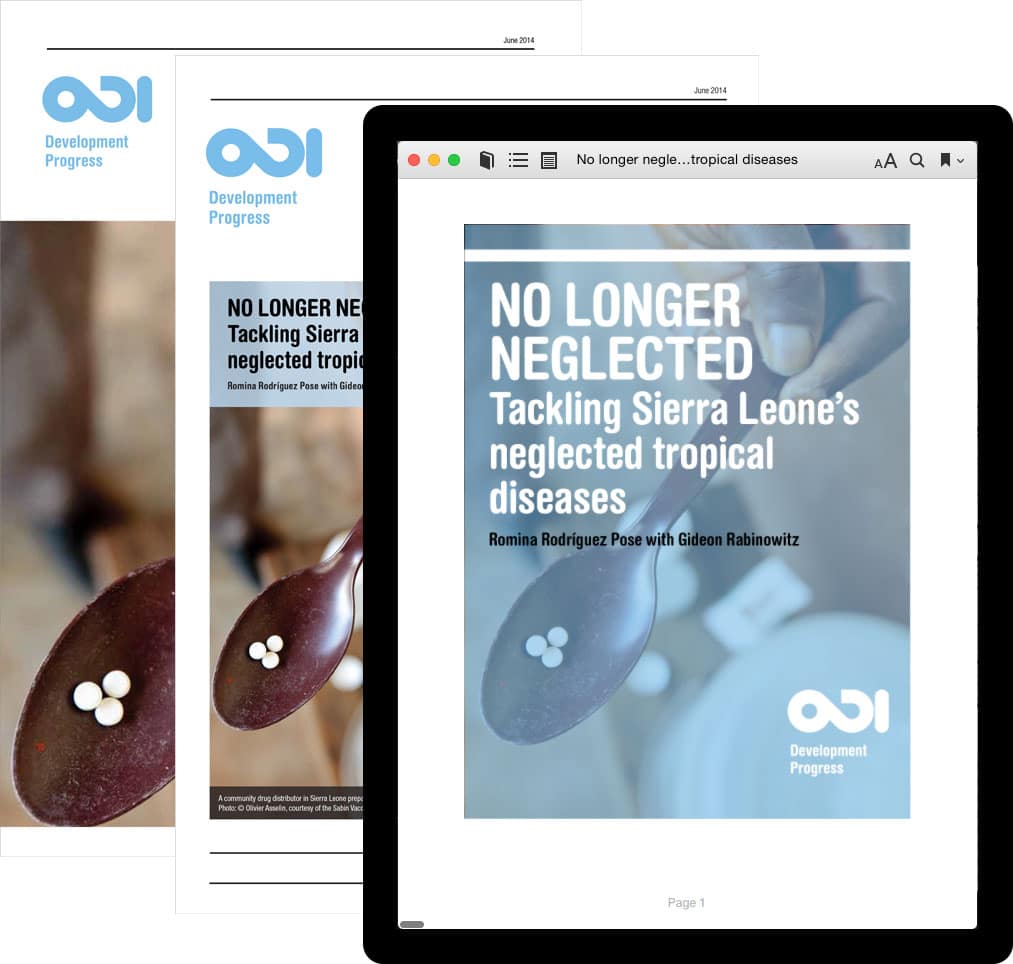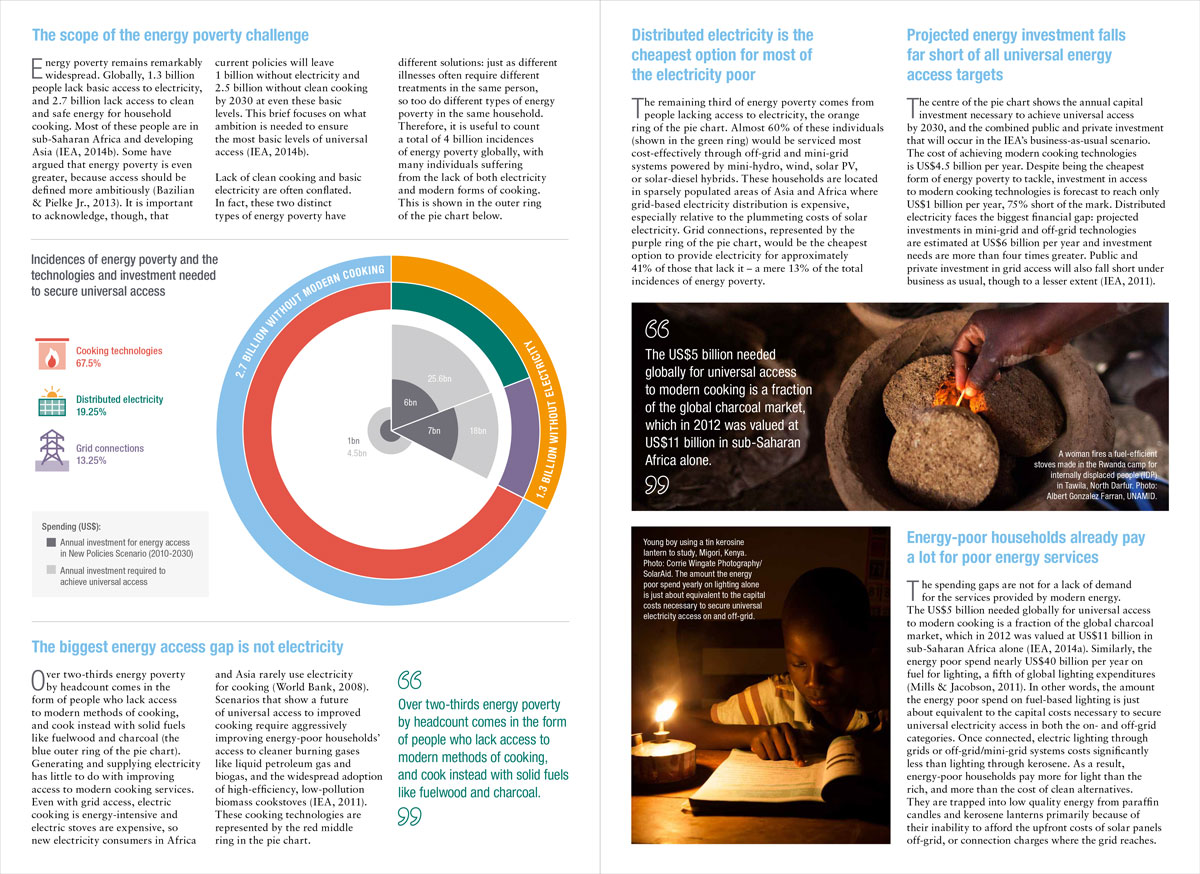Not-for-profit organisation centralised its publishing process with Typefi Desktop, enabling organisation-wide design consistency and cost-effective multi-format publishing.
The Overseas Development Institute (ODI) is an independent think tank focusing on international development and humanitarian issues.
Based in London, UK, ODI has over 240 employees, including researchers, specialist support staff, and a small communications team who manage public relations, events and publications.
The challenge: Maintaining consistency
In 2013, ODI’s Publications Manager and Production Assistant were working with the organisation’s 12 separate research departments to publish 200–300 research reports, briefing papers and working papers each year.

The individual ODI research teams were responsible for producing many of their own publications directly from Microsoft Word to PDF, while the publishing team’s role was to advise on peer review, scheduling and format, identify freelance editors and designers, and support staff in using the macro-enabled Word templates.
Other publications which needed more sophisticated design and layout—such as annual reports and flagship research reports—were sent to external designers for production.
This decentralised workflow meant the production quality and design of the publications varied greatly, and costs for external typesetting could be high. The timing of publication releases was also not coordinated centrally.
“The central communications team didn’t have a good enough sense of when new publications were coming out across our various research teams until too late in the production process,” said Joanna Fottrell, ODI Publications Manager.
“We were missing opportunities in terms of marketing and media promotion.”
Following a major rebranding exercise in 2012, ODI identified the need for greater consistency and quality control across all publications. However, as a charity with limited funds, ODI needed a cost-effective solution that would not involve further outsourcing or hiring new staff.
Typefi Desktop: A single-user licence with opportunity to grow
ODI chose Typefi Desktop, Typefi’s single-user solution for small to medium businesses.
The platform met all ODI’s solution criteria—centralised content management, deployment of high-quality professional design templates, retention of Microsoft Word for authoring and editing, and the ability to produce e-books without investing extra time and money on reformatting.
Typefi Desktop was installed on a remote machine, providing access to all staff. However, only one person could use Typefi Desktop at any one time, which enabled immediate centralisation and coordination of the publishing schedule.
ODI decided to initially implement Typefi for one discrete research project, to develop and fine-tune the tools and workflow before rolling it out across the entire publishing program. The Development Progress (DP) project was a perfect choice, as it had its own publication series with fixed deadlines and launch dates.
“The DP’s publishing schedule meant we could plan for when we needed templates to be complete, and when we would be testing live publications,” Joanna explained.
The DP project publications also had more sophisticated design requirements than many ODI online-only publications, with complex layouts, figures and infographics.
In late 2013, Typefi Solutions Consultants began training ODI staff in using the Typefi Writer add-in for Microsoft Word, and assisting them to develop the Adobe InDesign templates for the Development Progress project.
This included tailoring scripts to specific ODI requirements for footnotes, tables of contents, balanced columns, and colour-switching between templates.
“Typefi staff have been brilliant in supporting us to build and refine our templates, and define our requirements for script development,” Joanna said.
“The face-to-face training that we received was invaluable, and the ongoing remote support has been fantastic too.”
Wider rollout for consistent publishing organisation-wide
By July 2014, ODI staff members were working independently in the new system and could run a marked-up Microsoft Word document through Typefi to return print- and web-ready PDFs within minutes.
“The interface for our authors and editors was still Word, but the final product could look so much better. This was really appealing to us,” Joanna said.

Development Progress also became the first ODI research team to produce EPUB versions of its publications, with Typefi enabling the same source content to be rendered as high-quality e-books.
Following the successful Development Progress project, the ODI team turned its attention to implementing new design templates for ODI research reports, working papers and policy briefs, developing a new workflow for the administrators and researchers, and training staff in the new systems.
“The first year has been very much development and learning. It’s taken time, but we now have templates that meet our needs,” Joanna explained. “Now, as we’re starting to roll it out across our programs, we’re really starting to see the benefits.”
Ready to take the first step towards revolutionising your publishing?
We’ll work with you to understand the publishing challenges you’re facing and determine which Typefi solution best suits your budget and production requirements. Start by telling us a bit about your publishing needs and we’ll be in touch!
